Harare, 05 April, 2022 / 3:23 pm (ACI Africa).
A Catholic Nun ministering in Zimbabwe has lamented the lack of sanitation facilities for migrants and informal traders living in Beitbridge, a town in Matabeleland South Province that forms the political border between South Africa and Zimbabwe.
In an interview with ACI Africa Monday, April 4, Sr. Esnath Gondo highlighted the challenges migrants and those engaged in informal trade face in Beitbridge saying, “Most of them live in shelters made of plastic, with no access to water and no electricity.”
“My biggest concern are the women; there’s no proper sanitation, women are living in dire and unsafe conditions,” said Sr. Gondo who worked as a teacher in Beitbridge from 2013 and started her service among informal traders and migrants on transit to South Africa in search of better living conditions since 2020.
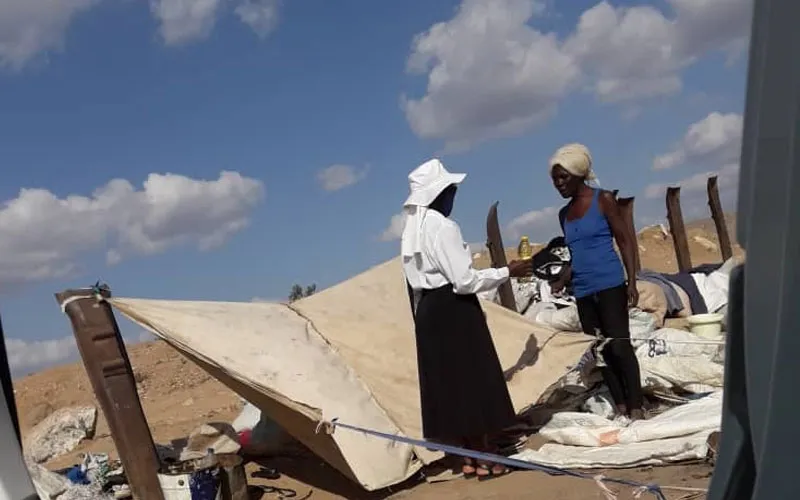 Credit: Sr. Esnath Gondo
Credit: Sr. Esnath Gondo
Majority of the migrants and informal traders, the member of the Sisters of the Holy Cross (CSC) in Zimbabwe’s Catholic Diocese of Masvingo said, “cannot afford to buy water … don’t have money to buy water. Mothers cannot afford to feed their babies; there’s a great need for assistance here.”



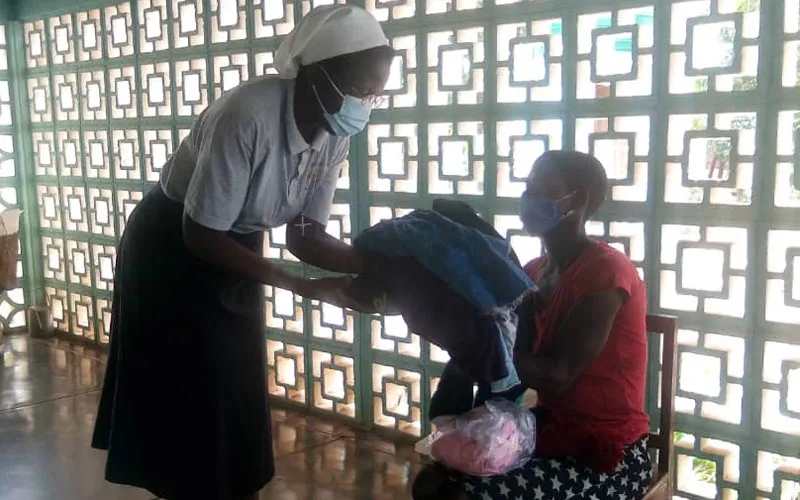
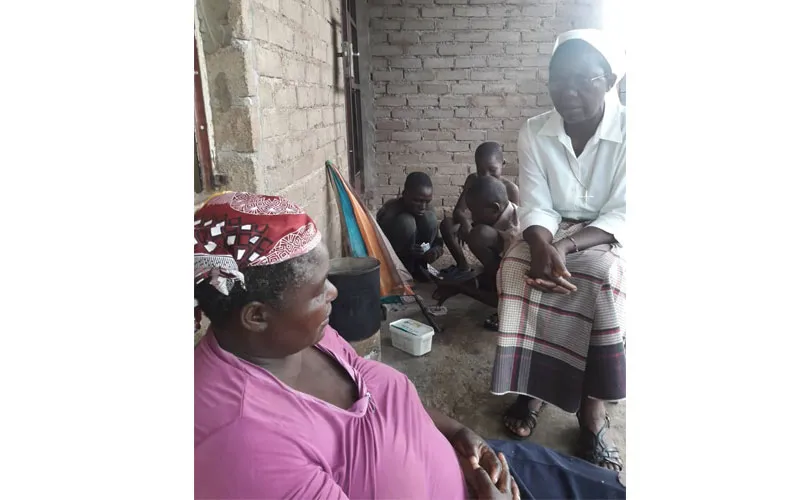 Credit: Sr. Esnath Gondo
Credit: Sr. Esnath Gondo
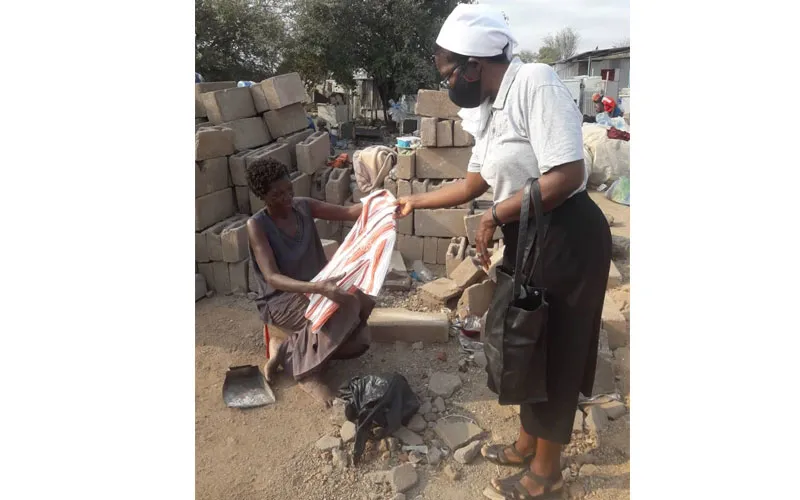 Credit: Sr. Esnath Gondo
Credit: Sr. Esnath Gondo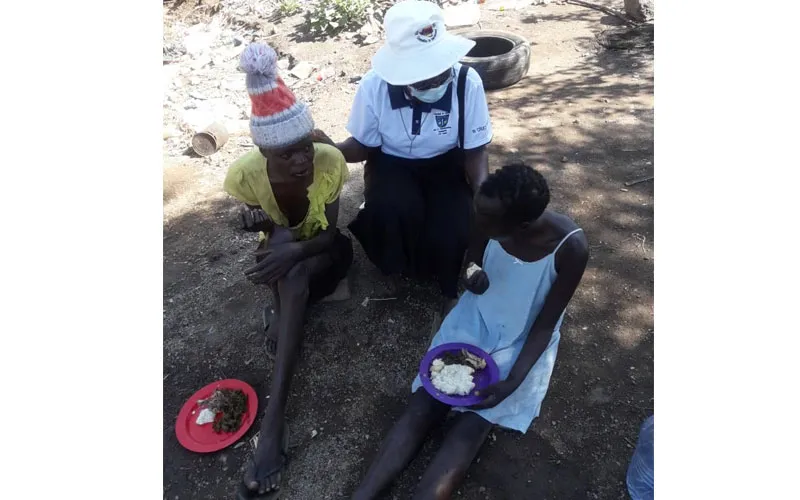 Credit: Sr. Esnath Gondo
Credit: Sr. Esnath Gondo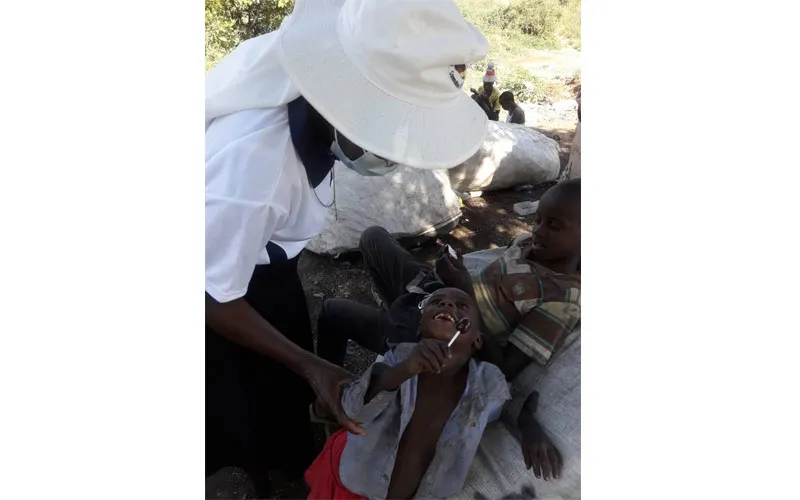 Credit: Sr. Esnath Gondo
Credit: Sr. Esnath Gondo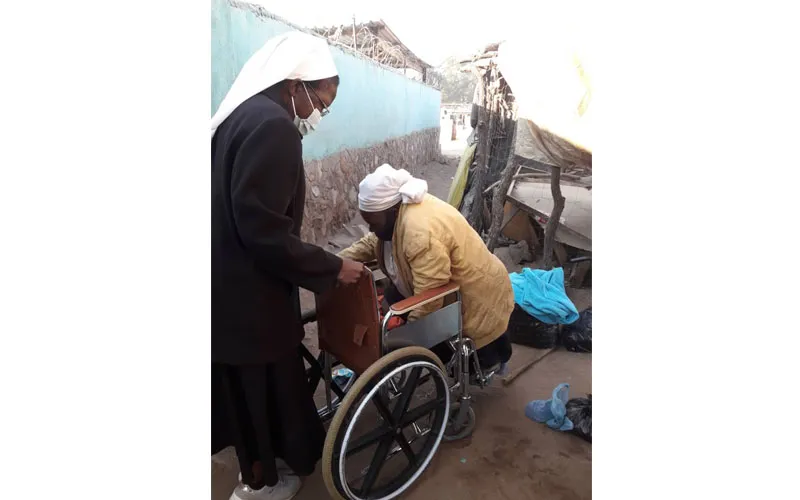 Credit: Sr. Esnath Gondo
Credit: Sr. Esnath Gondo


